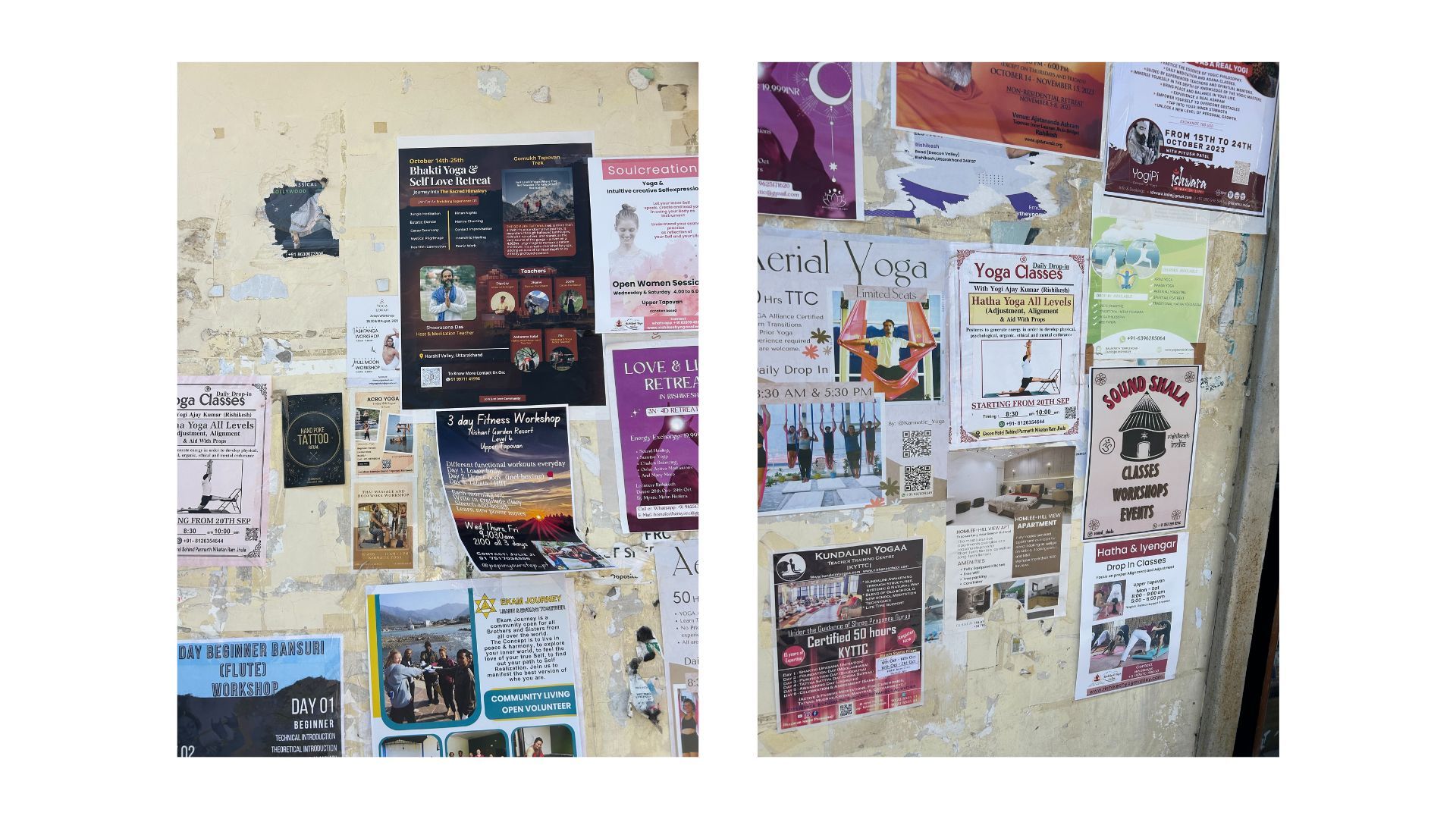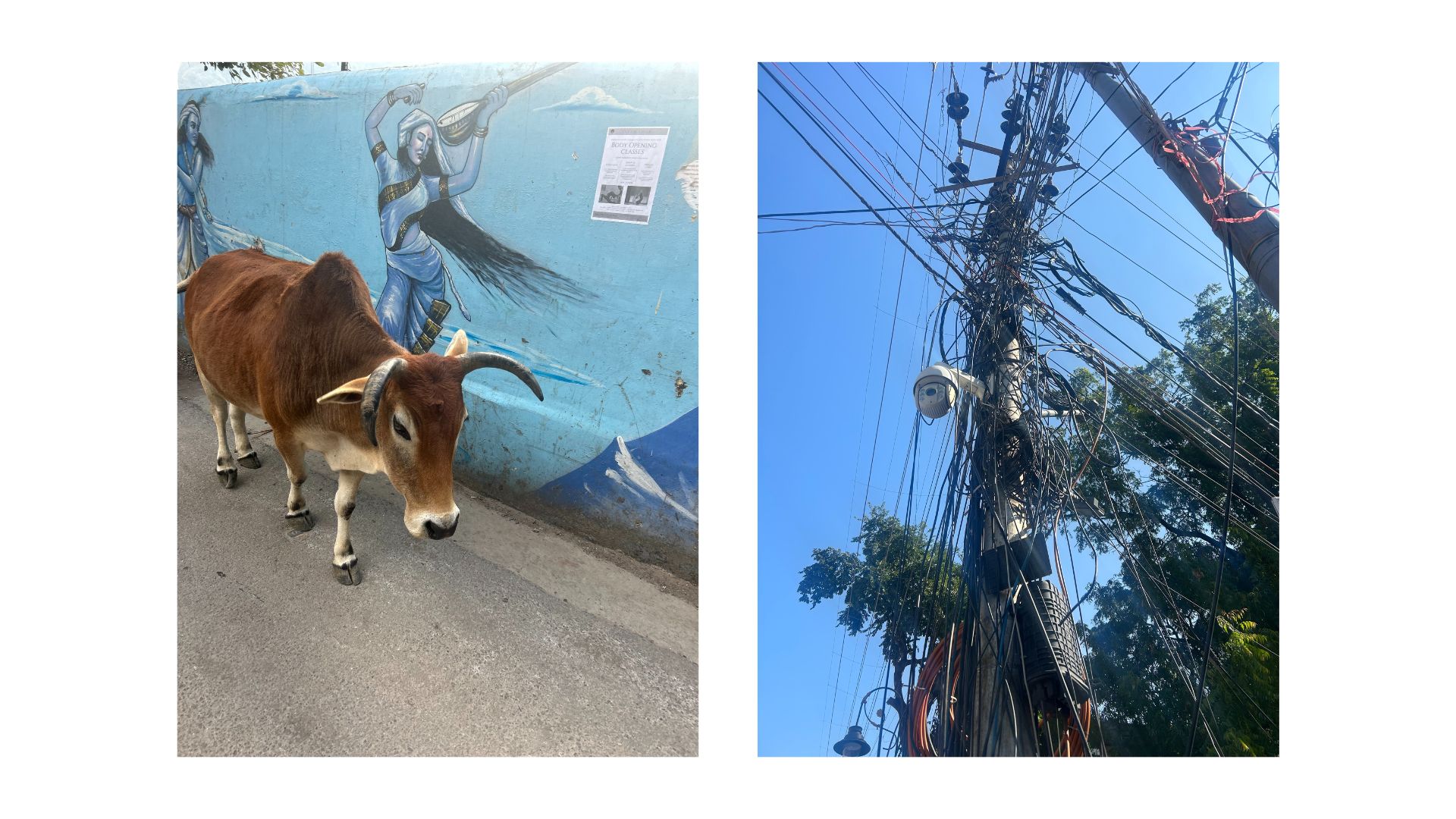Rishikesh is known as the "Gateway to the Himalayas" and the "World Yoga Capital". It has always been associated with strong spiritual energy, to the extent that its name derives from "Rishi", meaning sage or seer.
The sages or seers used to retreat to this wild part of India, living inside caves surrounded by tigers and monkeys. Immersed in the lush jungle at the foot of the mountains, with the Ganges flowing along its banks, it is practically a paradise of spirituality and silence.
And now?
The impression is that you are transported to a vibrant town, colorful and bustling with people from all over the world who come to practice yoga, meditate, chant mantras under colorful tents, savor spicy foods that might set your tongue on fire, and leave behind alcohol and meat, which are strictly forbidden. The local people are welcoming. They are happy to have you there, and they might address you as "man" even if you are a "woman", but it doesn't matter; their honesty compensates for it. They will help you out if you forget your water bottle or if they make a mistake in counting the change you are owed. They are not too precise with directions; if they say "open", the place might be closed.
Everything is reasonably priced, and no one begs for money. They can be a bit daring with their electrical installations, their religious ceremonies will leave you breathless, but above all, Rishikesh is all about yoga, and the yoga mat is their magic wand.

The city offers endless possibilities in the field of yoga. Intensive yoga courses for becoming teachers, practices for the curious, schools on every corner, and ashrams for the most spiritually inclined. There, you can learn Hatha, Vinyasa, Kundalini, Ashtanga, yogic philosophy, Yoga Nidra, Tantra, prenatal yoga, postnatal yoga, aerial yoga, yogic cooking, then study music and play crystal bowls, drums, receive Ayurvedic treatments, be covered in oil for hours, and offer flowers to the deities. You can cross the river in a canoe, relax on the white beaches along its banks, go trekking, swim in natural pools surrounded by small waterfalls, and if you're lucky, witness a funeral.
If you're unlucky, on the other hand, you might end up sleeping near a wedding venue. In India, weddings can last for more than a week. As you know, Indians love noise. They use the horn for everything: to greet someone, to announce their arrival, to signal their departure, to turn right, left, to stop, to make a cow, a dog, a monkey move. The result is that when you return to Italy, the chaotic city you left behind seems as quiet as a chalet in the snow.

Returning to Rishikesh once again, yoga and the city enchant you. The combination of the two still holds something magical and primal, carefully preserved and hitting you like a strong slap in the face. You are stripped of unnecessary trinkets, taught to find tranquility amidst the noise, shown how simple it is to wake up at dawn to sleep more deeply, instructed in the kindness towards animals that are not eaten but honored, advised to keep your feet on the ground and walk barefoot.
They teach you to bow your head and put your hands in prayer only to greet each other, say thank you, start a lesson, or simply out of respect. They suggest not wanting more than what you have, encourage you to breathe, and recommend you to pause. They equip you with the tools for self-healing, self-embracing, and self-answering. They make you understand that there's nothing to seek; they teach you to see and not just look. Until one day, right after finishing a wonderful Hatha Yoga practice on the rooftop of an ashram at sunset, you wonder, "Do I see all of this only because I've traveled 6,000 kilometers, and if I didn't see it, would I be a fool?"
Who knows...

Photos by Claudia Riva
.jpg)